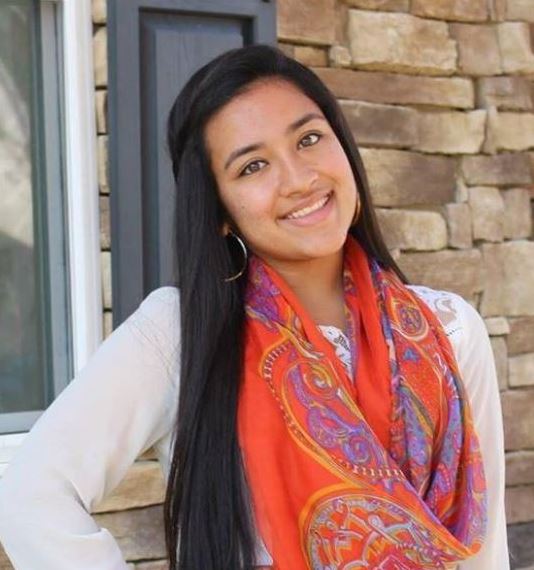Second language will open every door along the way -Ayushma Sharma


Ayushma Sharma was a student in a Nepali (pathashaala) school in North Carolina for 5 years until she graduated. After her graduation, she in turn became a volunteer teacher to the same school she studied at.
interview by her volunteer teacher, Namrata Guragain
1. Why do you like Nepali language?
I do not just like the Nepali language, I love it. A very wise man named Edmund de Wall once said “With languages, you are at home anywhere.” Growing up thousands of miles away from my motherland, our Nepali language was the most important way that I preserved the cultures and values of home. It was the first language that I learned to speak while growing up, and I cherish everything that I have gained from the language. Growing up in America, we are bound to learn English. However, I have learned that while one language may set us in a corridor for life, a second language will open every door along the way. Our Nepali language has done that for me, and that is why I love it the most.
2. Do you have any interesting things to remember when you were learning Nepali language at the very beginning?
My family and I migrated to the U.S. when I was three years old, so I was already able to speak Nepali. I remember beginning to learn English, and being very confused on which language to use at which setting. In order to assure that I would never forget our language, my family and I made a rule that once we are inside of the house, we can never speak in English. Because of that rule I can still speak Nepali very fluently. The hard part came when I began learning how to read and write Nepali. I first began going to Nepali school in Omaha, Nebraska. While attending there, Sujata aunty was my teacher, and I learned a lot of my writing from there. I remember at the beginning, having a lot of trouble remembering all of the alphabet. I would learn the first few lines, master them, and move on to the last few lines, and by the time I had learned the last few lines, the first few would once again become confusing. While writing, I also remember frequently writing letters backwards. Especially ‘Ba’ and ‘Wuh’. I learned that it’s a process, and only a lot of practice can help you get better. Reading Nepali was the same way. At first, I was very slow, but with practice, I gradually got better.
3. There are plenty of areas to do volunteering, but how did you motivate to teach Nepali language?
While it is true that there are many different areas where I can volunteer, not everyone has the opportunity to volunteer at a Nepali school, teaching a language that I am so proud to speak. I grew up going to Nepali school, and I remember always looking up to the ‘uncles’ and ‘auntys’, ‘dais’ and ‘didis’ wishing I could teach the same way that they taught me. So after I graduated Nepali school in 2015, I was ecstatic to finally have the opportunity to pass on the knowledge that I have learned to others. Nepali school has not only given me that opportunity, but it is also a great way for me to refresh my memory, and ensure that I never forget how to read and write as well. As I always say, practice makes perfect! On top of that, I love being around little kids, and teaching at Nepali school means I get to be around them all the time. Not only am I able to teach little kids how to read and write Nepali, but I also have the opportunity to teach dance there. As many people know, I am a huge dance enthusiast, so I really enjoy being able to teach the kids. I am motivated to teach Nepali language at Nepali school because it is the perfect platform for me to do all the things I love. I consider myself very lucky to have that opportunity.
4. You are a high school student, is it hard to balance both Nepali and English language?
Because I have been speaking both languages for so long, I think I have found a good balance between the two, but I remember it being very difficult when I was a kid. I remember going to the park and talking to kids in Nepali, and then later crying because they could not understand what I was saying. The same used to occasionally happen at school. At home, although I tried my very best to not speak English, I remember occasionally having to speak it to get my point across. It’s hard when you are a little kid trying to balance both languages at once. But after a while, it became a lot easier. The same happens with balancing the Nepali and American culture. We are expected to follow both cultural norms, but for people of any age, that can be difficult to adjust to. Now, as a high school student, I think I have found a balance between the two. By no means is the balance perfect, but it has been working well for me.

